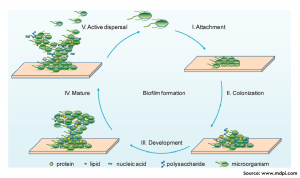Antibiotic resistance (ABR) is a global priority, like climate change. The issue of ABR in India is quadrupled due to injudicious antibiotic use in the human, animal and plant sectors, poor knowledge, underutilisation of diagnostic procedures, inadequate health facilities, overpopulation, and poverty. It is pertinent to address this issue because the drugs of choice to treat resistant infections are limited. The development of novel antimicrobial agents slowed down due to scientific constraints and poor financial gains. The poor drug quality adds to the problem.
One of the ways to address this issue is to look into natural products and their derivatives. Plants have been used as medicine from time immemorial. The antimicrobial properties of various medicinal plants are already recognised. For example, the piperine compound in black pepper has potency against different bacterial and fungal species. Similar is the case with the tannin compound from the California buckthorn plant, allicin from onion, caffeic acid and thymol from the Thyme. Anthemic acid from Chamomile is potent against bacteria causing tuberculosis. Similarly, extracts from certain mushrooms have shown antibacterial effects against Staphylococcus aureus and Enterococcus faecalis.
Various antimicrobial compounds are obtained from animals or animal products. For example, lactoferrin has excellent antibiotic characteristics against E.coli, Klebsiella, Listeria monocytogenes etc. A biopolymer called chitosan has potency against various gram-positive and negative bacteria.
To know more about the natural products and their antimicrobial properties, please visit the website of the journal Saudi Journal of Biological Sciences (Link).







